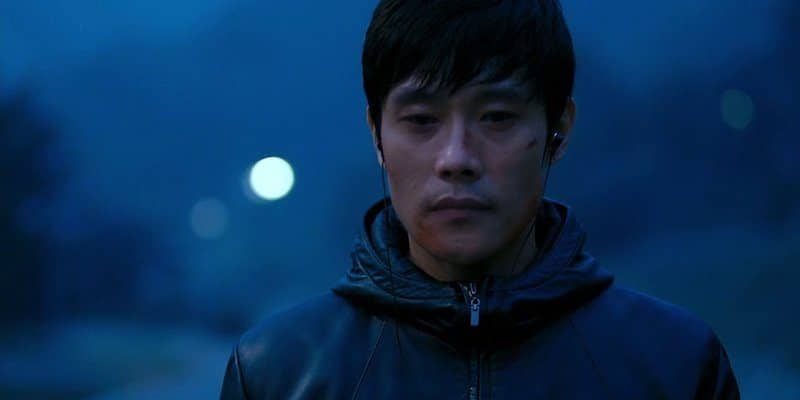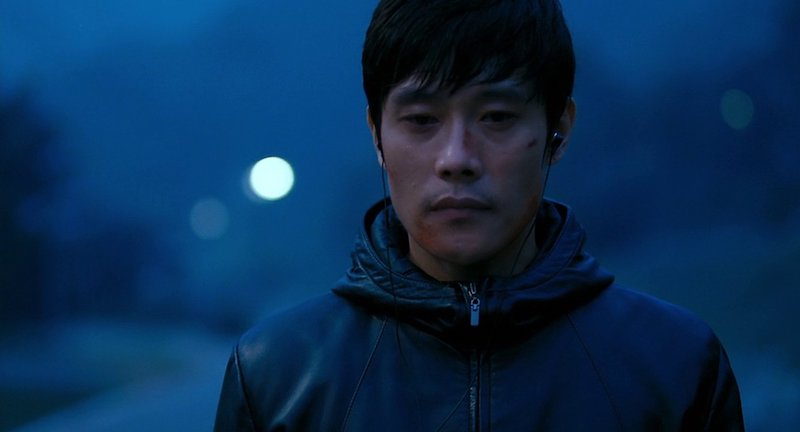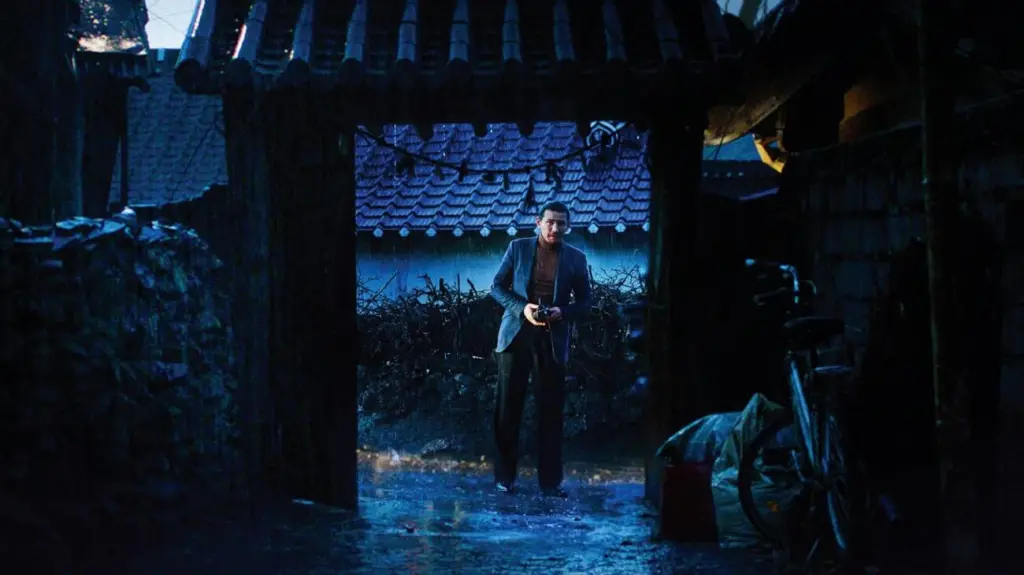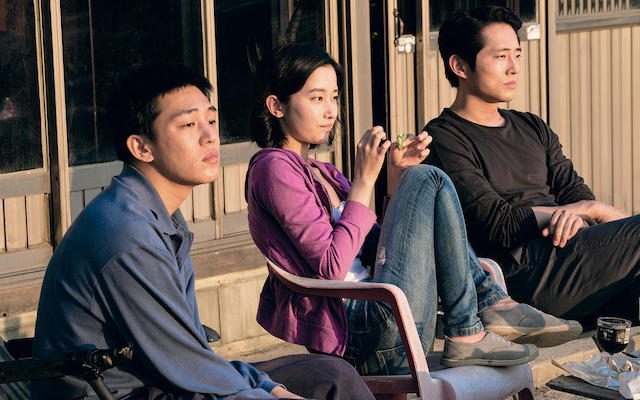Physical Address
304 North Cardinal St.
Dorchester Center, MA 02124
Physical Address
304 North Cardinal St.
Dorchester Center, MA 02124

The South Korean movie industry is on the rise, and now you have an opportunity to see some of the best films from the country. From heart-wrenching dramas to hilarious comedies, these films have something for everyone. So whether you’re just getting into South Korean cinema or you’ve been following the industry for years, we’ve got you covered.
Here are five of the best South Korean movies you can watch right now.

Despite how great this list is (and it is) there really is only one place to start and that’s with Parasite.
There is a good reason for the widespread praise and Oscar success that this dark comedy-thriller has received on a global scale. A very intriguing take on the topics of class, brutality, and social inequity, Parasite captivates with tense storytelling throughout the movie and has a captivating and genre-defying premise.
The Kim family is depicted as they struggle to make ends meet until Ki-woo, the son, discovers an unexpected chance. He decides to accept a job instructing Da-hye, a daughter of the affluent Park family parented by the beautiful Cho Yeo-jeong and Lee Sun-kyun, despite having no prior experience teaching English. The entire Kim family then sets out on a mission to penetrate the opulent home.
Each family member finds employment one at a time under the pretence that they are only tangentially related through shared acquaintances. Even if the two families eventually come to an amicable understanding based on servitude and wealth, there is an unanticipated parasite that poses a threat to it all by revealing the truth.
“Parasite” achieved global recognition by winning the Best Picture Oscar in 2020, marking the first time a non-English language film received this accolade. This win underscored South Korean cinema’s growing influence on the international stage, breaking barriers and broadening the audience for foreign-language films. The multi-layered storytelling and its engaging social commentary resonated with various audiences worldwide, elevating global interest in South Korean cinema.
Beyond its cinematic accolades, “Parasite” has sparked significant cultural discussions worldwide. It highlights the stark contrasts between wealth and poverty, a theme resonant in many societies. The film’s depiction of the Kim family’s plight poignantly addresses the global issue of economic inequality, prompting audiences to reflect on social justice. This narrative not only entertains but also raises awareness, inspiring viewers to consider the dynamics of power and privilege in their own lives.

Train to Busan, a must-see Korean thriller, depicts a man fighting for survival on a speeding train that is overrun by a zombie outbreak. It offers a new and inventive perspective on one of the most well-known cinema genres, the zombie apocalypse flick. Watching this one will keep you on the edge of your seat the entire time! For good reason, it’s frequently regarded as one of the best zombie films ever (even by Shaun of the Dead director Edgar Wright! ): It’s thrilling, intense, and presents one of the most creative and distinctive views on the subject.
Workaholic Seok-woo (Gong Yoo) is divorced. He seldom ever sees his daughter Su-an because he shares a home with his mother (Kim Su-an). He ignores the fact that she already has a Nintendo Wii and that he was the one who bought it for her on Children’s Day since he is so far removed from her that he gives her one for her birthday. He agrees to give Su-an what she really wants—a trip to her mother’s house in Busan, which is 280 miles away—as compensation for this somewhat difficult situation. From Seoul, it’s only a one-hour train travel. What possibly could go wrong? This is more than simply a train voyage for Seok-woo and Su-an; it’s a journey into the past as a parent tries to build bridges and fix what might be broken. Even the setup is thematically beautiful. It’s the ideal backdrop for a zombie film.
“Train to Busan” isn’t just a thrilling ride—it also reflects South Korea’s societal issues, such as class struggles and family dynamics. The film highlights the tension between self-preservation and communal responsibility, which resonates strongly with Korean audiences familiar with these social themes. It captures the emotional struggle of prioritizing personal survival over the collective good, mirroring real-life dilemmas faced within the societal context.

You can’t properly appreciate Korean cinema without taking a look at their very outstanding horror movies, particularly this 2010 horror-thriller that follows a secret agent on the hunt for a serial murderer after his wife is brutally killed. This is probably not a movie you want to watch late at night.
This film is not for the weak of heart or the easily offended. Censors argued that it was disrespectful to human dignity. At the I Saw the Devil Uncut Version’s global premiere showing of the Toronto International Film Festival last week, they explained these kinds of things to the audience. Although I had heard the movie was somewhat explicit, I never anticipated it to go too far. I was only partly correct, it turned out.
Secret agent Dae-hoon (Byung-hun Lee) is at a loss after learning that his fiancée was brutally murdered. He embarks on a revenge scheme with the assistance of his father-in-law in an effort to track down the perpetrator. He swiftly identifies Kyung-chul as the offender (Min-sik Choi). Although he hits him very hard, he doesn’t kill him; instead, he leaves him alive. He intends to stalk his victim in order to extract gradual, agonising retribution.
Kim Jee-woon, renowned for his distinctive style, skillfully blends horror and thriller elements in “I Saw The Devil.” His exploration of human darkness and the blurred lines between good and evil offers a gripping cinematic experience. Kim’s meticulous attention to atmosphere and tension building is evident, making the film both a visual and emotional rollercoaster. His works often reflect a nuanced understanding of psychological terror, and “I Saw The Devil” is no exception.
It’s impossible to accurately replicate the film’s grim, brutal experience in North America. Only in Korea could you discover a hard-boiled revenge thriller like this. The picture is even more uncompromising and amazing when you learn that even the local censors were unable to handle Kim Ji-whole woon’s vision. Simply put, it is unforgettable.
I Saw the Devil’s central revenge plot isn’t all that unique, but the idea and stories that surround it are. Rarely do we see a movie with two characters that are initially quite different yet very subtly merge into one another. Both Dae-hoon and Kyung-chul are incredibly obstinate people who won’t give in to the other. Even though Kyung-chul is continuously battered, they just keep fighting, and he never once gives up.

The Wailing, which has a 99% rating on Rotten Tomatoes, is undoubtedly evidence that South Korean cinema has traditionally excelled in the horror genre. This critically acclaimed horror-thriller movie, which is not for the faint of heart, is about a string of unsolved murders in a remote Korean town.
The comedy quickly deepens into a calamitous atmosphere where anything could be unleashed as Kwak Do-sloppy won’s country police sergeant cop investigates a series of violent murders allegedly connected to a strange illness. Na carefully blindsides with the kind of bungling police procedural familiar from Bong’s Memories of Murder. Astonishingly, in one scene, the village’s efforts to get rid of a Japanese wanderer who is thought to have evil abilities reach a fever pitch. Then, as the pursuit closes in on the detectives, Na astonishingly demonstrates that he has been keeping a number of gears in reserve. The layers of deceit and self-deceit build up to the point that Na not only touches on an essential aspect of the nature of evil, but also appears to be conjuring it right in front of your eyes. A rather unnerving invocation.
The Wailing is deeply rooted in Korean folklore and superstition, which adds a chilling authenticity to its narrative. The film portrays shamanistic rituals and traditional beliefs about evil, which are integral parts of Korean cultural identity. This cultural backdrop enhances the horror, as the film draws on long-standing beliefs about supernatural forces influencing daily life, creating a richly layered story that captivates and terrifies in equal measure.
The second act of The Wailing drags a little, spending perhaps too much time on the shaman’s exorcism rituals, but it’s crucial for setting up the third act, which constantly throws the audience for a loop, and Jong-well-intentioned Goo’s investigation, culminating in a truly shocking but ominously foreboding climax.
The Wailing is a two and a half hour long picture that is never slow. However, by the time it weaves its dark, powerful spell, it leaves you with a lingering, unshakeable sensation of dread that Hollywood horror films rarely manage to elicit.

This critically acclaimed psychological mystery drama from Lee Chang-Dong, which is based on the short story Barn Burning by Japanese author Haruki Murakami, tells the quietly haunting tale of a young man who discovers a mysterious secret after his childhood friend returns from a trip and brings along a man with an odd hobby.
The film has an intense musical score, and at one point, director Lee incorporates the heady Miles Davis jazz theme from Louis Malle’s Lift to the Scaffold. Lee does a masterful job of evoking a sense of time and location. He excels at conveying Jongsoo’s numbness and astonished, subdued acceptance of his existence.
His sex scene with Haemi is masterfully staged: Jongsoo can’t believe he’s been lucky, but during the act he stares helplessly at the wall—the camera adopts his perspective—and we can sense how strange he finds this enigmatic and virtually anonymous connection. But as time goes on, it becomes clear how Jongsoo’s indignation, beta-male resentment, dread, and rage—perhaps an anger he inherited from his father—grow from this quiet. He drives around his old pickup truck obsessively looking for evidence against Ben and then looking for proof of the “well” that Haemi believes was the location of a significant childhood memory, the significance of which he can hardly stand to contemplate.
“Burning” expands Haruki Murakami’s “Barn Burning” by deepening its themes of alienation and the search for meaning. The film explores the ambiguity and tension between reality and illusion, reflecting Murakami’s signature storytelling style. Director Lee Chang-dong injects additional layers of societal critique and personal introspection, crafting a narrative that dives into the psychological complexities of its characters. This adaptation remains true to its source while offering fresh insights into human nature and existential dread.
The film’s complex narrative is enriched by its subtle visual cues and symbolic elements, which invite multiple interpretations. “Burning” uses its ambiguous storyline to explore themes like obsession, jealousy, and the nature of truth. The open-ended narrative encourages viewers to engage actively with the plot, drawing their conclusions, much like Murakami’s literary works. Lee Chang-dong’s direction fosters a contemplative experience, challenging audiences to question the facade of reality and their perceptions of it.
South Korea is likely the most significant Asian nation in terms of filmmaking, along with Japan. South Korea offers it everything, from Kim Ki Duk’s peculiar art house to high-budget monster blockbusters. Some of this decade’s most intriguing filmmakers may have come from South Korea. Sadly, other online lists that purport to include the finest Korean movies just include a lot of blockbusters. These movies have a Korean aesthetic yet are more like Hollywood movies. However, Korea’s art house culture is also thriving. Let us know if you have any great films to recommend.